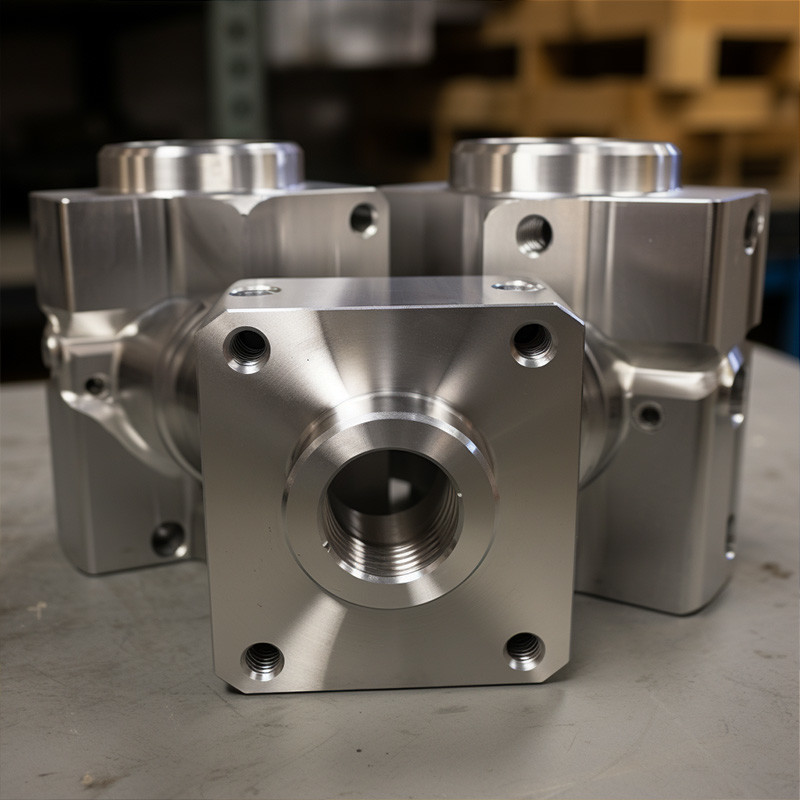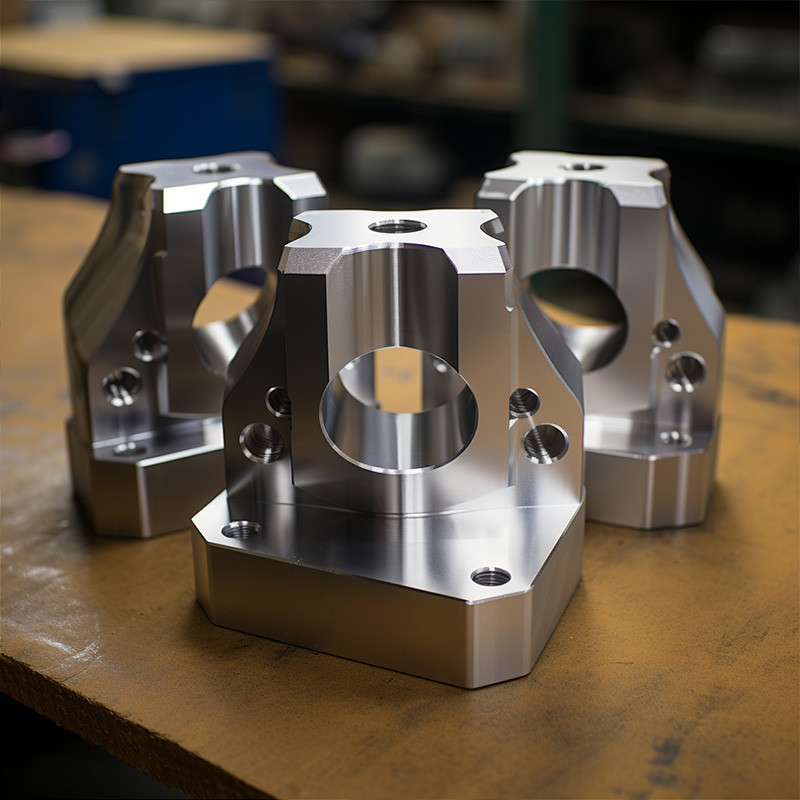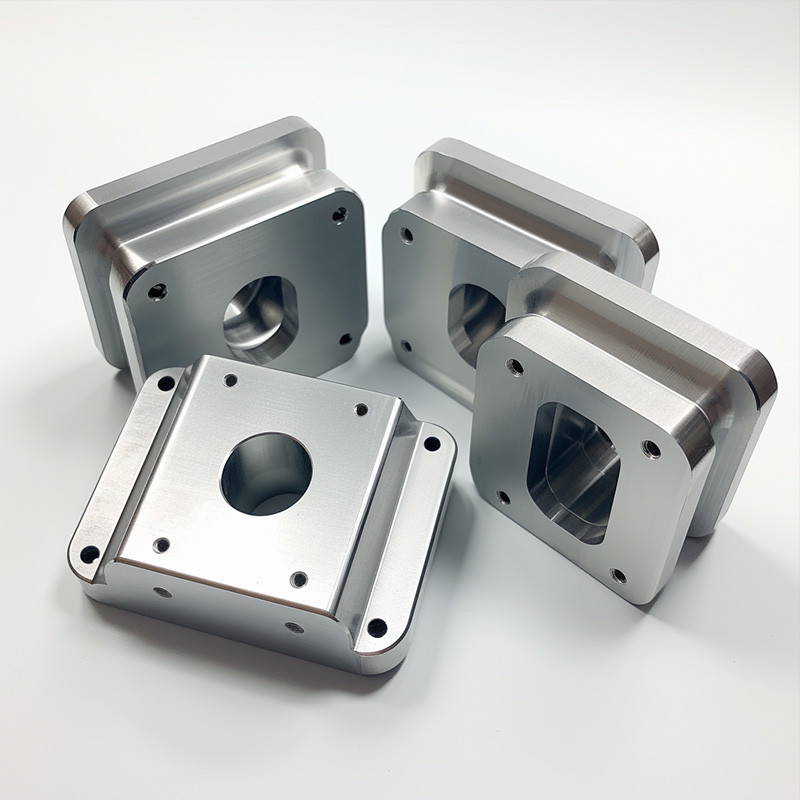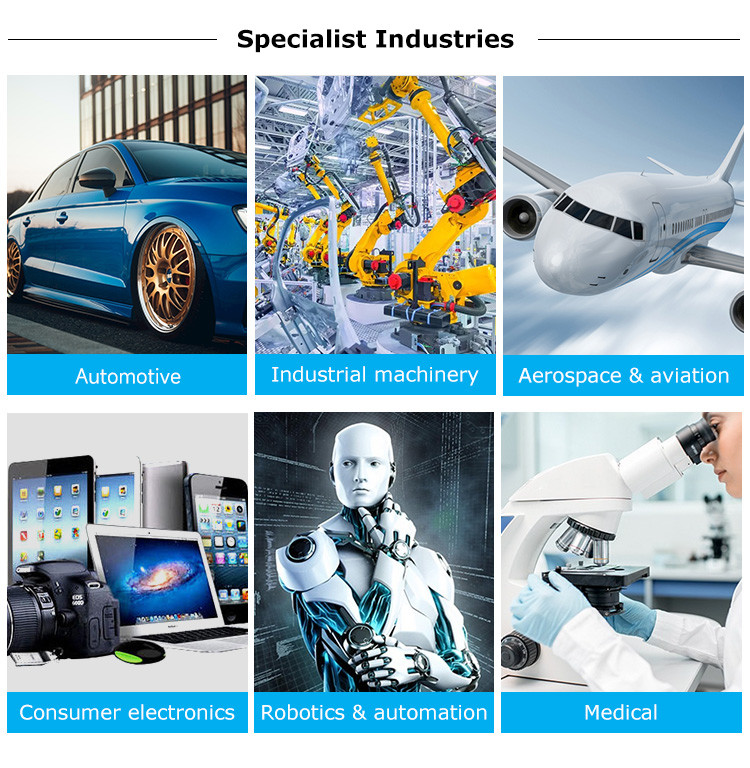Dongguan Yexin Intelligent Technology Co., Ltd. |
|
Verified Suppliers
|
|
CNC machining operates on subtractive processes, where the feedstock is machined to its final
form through the removal of material. This includes activities such as drilling holes, boring lots
and pathways, and shaping metal stock into new material with varying tapers, diameters, and
shapes.
In contrast to additive manufacturing methods that involve the addition, layering, and deformation
of materials to achieve a specified shape, CNC machining achieves shapes by subtracting material.
This distinction also separates it from injection molding, where material is injected in a different
state of matter using a mold and formed to a specified shape.
Product Details
Materials for CNC machining are typically classified into three major categories:
plastics, soft metals, and hard metals. Examples encompass aluminum, bronze, copper,
ceramics, plywood, steel, stone, wood, zinc, and various others.
Materials characterized by ease of manipulation and favorable properties are commonly preferred
over alternative options.
| Common Materials for CNC Machining | |
| Material | Properties |
| Aluminum | 2024: Good fatigue resistance and strength; excellent toughness at moderate to high strength levels; improved fracture toughness |
| 6061: Excellent machinability, low cost, and versatility | |
| 7075: High strength, hardness, low weight, and heat tolerance | |
| Brass | Versatile and highly attractive copper/zinc alloy with warm yellow color accommodates severe forming/drawing |
| Copper | High ductility and high electrical and thermal conductivity; develops attractive blue-green surface patina over time |
| Stainless Steel | Excellent machinability and outstanding uniformity; good workability and weldability, high ductility and formability |
| Steel Alloy | Mix of chromium, molybdenum, and manganese yields toughness, good torsional and fatigue strength |
| Steel Mild Low Carbon | High machinability and weldability, high stiffness; good mechanical properties, machinability, and weldability at low cost |
| Titanium | Excellent strength to weight ratio, used in aerospace, automotive, and medical industries |
| ABS | Excellent impact resistance, good mechanical properties, susceptible to solvents |
| Nylon | Excellent mechanical properties, high toughness, poor moisture resistance |
| POM | High stiffness, excellent thermal & electrical properties, relatively brittle |



| CNC Milling Tolerances | ||
| Limits for nominal size | Plastics | Metals |
| 0.5mm* to 3mm | ±0.1mm | ±0.05mm |
| Over 3mm to 6mm | ±0.1mm | ±0.05mm |
| Over 6mm to 30mm | ±0.2mm | ±0.10mm |
| Over 30mm to 120mm | ±0.3mm | ±0.15mm |
| Over 120mm to 400mm | ±0.5mm | ±0.20mm |
| Over 400mm to 1000mm | ±0.8mm | ±0.30mm |
| Over 1000mm to 2000mm | ±1.2mm | ±0.50mm |
| Over 2000mm to 4000mm | ±2.0mm | |
*Please clearly indicate tolerances for nominal sizes below 0.5mm on your technical drawing. | ||
CNC Machining Applications
CNC machining stands as a revolutionary force across various industries, offering unparalleled
versatility. In woodworking, CNC machines transform the production of wooden furniture,
providing a time-efficient and cost-effective alternative to manual craftsmanship.
The technology's precision is harnessed in lettering and engraving systems, where it serves to
mark patterns or text onto surfaces, meeting artistic and serialized requirements.
Within the electrical industry, CNC machining plays a pivotal role in tasks such as crafting
component mounting holes in printed circuit boards and producing heat sinks for electronics.
The pharmaceutical sector benefits from CNC machines in manufacturing precise equipment,
including metering pumps, ingredient-dispensing nozzles, and packaging components.
Even in the dynamic consumer goods industry, CNC machining contributes significantly to the
creation of custom material-handling machinery for the food and beverage sector, along with
the production of injection-molded plastic molds essential for food packaging.

Company Profile


FAQ's
1. What's the general surface texture of CNC milled and turned parts?
The surface texture of machined milled parts is commonly around 3.2μm (or 1.6μm for more
recent machines). In the case of turned parts, a finer surface finish is achieved, reaching a
roughness of 0.8μm. Notably, this enhanced surface texture in turning is accomplished without
the necessity of adjusting machining speeds.
2. The cost of CNC machining a part is shaped by a variety of factors, including:
1. Material: Material selection introduces cost variations, with
materials like aluminum being
more economical to machine compared to others like Inconel, attributed to factors such as tool
wear and cutting speeds.
2. Complexity: Parts featuring intricate designs incur higher
machining costs. The complexity
of surface shapes, for instance, significantly influences overall machining expenses.
3. Tolerances: The precision demanded by dimensional tolerances
impacts CNC machining costs.
Imposing overly tight tolerances on non-critical features can lead to unnecessary cost escalation.
4. Surface Finish: Achieving mirror finishes demands specialized
tools and machining strategies,
extending machining time and, consequently, increasing costs.
5. Quantity: Production volume is a key determinant of costs.
Low-volume production tends to
be costlier per part, as initial setup and programming costs are distributed over a smaller
production run.
3. What tolerances can achieve?
Tolerance specifications are not one-size-fits-all and are influenced by factors like part size, design
geometry, the number and size of features, material properties, surface finish, and the
manufacturing process. Upon order confirmation, a Design for Manufacturing review is conducted
to pinpoint areas for potential modification to enhance manufacturability.
Clearly indicating critical tolerance areas in your design is beneficial, allowing for adjustments to
streamline production time and costs. General tolerance guidelines are available for CNC machining
in metal and plastic, plastic injection molding, CNC metals and plastic injection molding materials,
metal 3D printing (+/- 0.5mm), and an expected shrinkage rate of +/- 0.15% for vacuum casting.
It is imperative to specify all manufacturing and technical requirements clearly in the 2D drawings
for accurate adherence.